Below you will find a list of Forex Brokers that offer hundreds and occasionally thousands of stocks for trading. Modern stock market, also known as equity market, connects buyers and sellers of shares with use of electronic networks that spread all around the world. Nowadays, you can purchase some securities without leaving your home or even using a phone to place an order. Most brokers providing specific trading platforms (such as CQG, L2, Sterling Trader, Rhino Trader, Trading Station etc.) offer direct access to US, UK and EU stock markets. Open an account, verify it, deposit some funds and you are all good to start trading.

 RoboForex (2009)
Leverage: up to 1:2000
Deposit: from 10 USD
Spreads:
RoboForex (2009)
Leverage: up to 1:2000
Deposit: from 10 USD
Spreads: 


















 Dukascopy (1998)
Leverage: up to 1:200
Deposit: from 100 USD
Spreads:
Dukascopy (1998)
Leverage: up to 1:200
Deposit: from 100 USD
Spreads: 

 Admiral Markets (2001)
Leverage: up to 1:1000 *
Deposit: from 200 USD
Spreads:
Admiral Markets (2001)
Leverage: up to 1:1000 *
Deposit: from 200 USD
Spreads: 












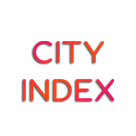 CityIndex (1983)
Leverage: up to 1:30
Deposit: from 10 USD
Spreads:
CityIndex (1983)
Leverage: up to 1:30
Deposit: from 10 USD
Spreads: 



 TradeView (2004)
Leverage: up to 1:400
Deposit: from 100 USD
Spreads:
TradeView (2004)
Leverage: up to 1:400
Deposit: from 100 USD
Spreads: 












 GO Markets (2006)
Leverage: up to 1:500 *
Deposit: from 200 AUD
Spreads:
GO Markets (2006)
Leverage: up to 1:500 *
Deposit: from 200 AUD
Spreads: 






 IG Markets (1974)
Leverage: up to 1:200 *
Deposit: from 300 USD
Spreads:
IG Markets (1974)
Leverage: up to 1:200 *
Deposit: from 300 USD
Spreads: 



 OctaFX (2011)
Leverage: up to 1:1000
Deposit: from 25 USD
Spreads:
OctaFX (2011)
Leverage: up to 1:1000
Deposit: from 25 USD
Spreads: 







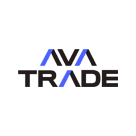 AvaTrade (2007)
Leverage: up to 1:400 *
Deposit: from 100 USD
Spreads:
AvaTrade (2007)
Leverage: up to 1:400 *
Deposit: from 100 USD
Spreads: 














 XM Group (2009)
Leverage: up to 1:1000 *
Deposit: from 5 USD
Spreads:
XM Group (2009)
Leverage: up to 1:1000 *
Deposit: from 5 USD
Spreads: 



 XTB Group (2004)
Leverage: up to 1:200
Deposit: from 250 USD
Spreads:
XTB Group (2004)
Leverage: up to 1:200
Deposit: from 250 USD
Spreads: 






 HQ Broker (2017)
Leverage: up to 1:400
Deposit: from 250 USD
Spreads:
HQ Broker (2017)
Leverage: up to 1:400
Deposit: from 250 USD
Spreads: 

 FP Markets (2005)
Leverage: up to 1:500 *
Deposit: from 100 AUD
Spreads:
FP Markets (2005)
Leverage: up to 1:500 *
Deposit: from 100 AUD
Spreads: 















 HYCM (1977)
Leverage: up to 1:500 *
Deposit: from 100 USD
Spreads:
HYCM (1977)
Leverage: up to 1:500 *
Deposit: from 100 USD
Spreads: 






 CoreSpreads (2014)
Leverage: up to 1:30
Deposit: from 10 USD
Spreads:
CoreSpreads (2014)
Leverage: up to 1:30
Deposit: from 10 USD
Spreads: 


 SwissQuote (2000)
Leverage: up to 1:100 *
Deposit: from 1000 USD
Spreads:
SwissQuote (2000)
Leverage: up to 1:100 *
Deposit: from 1000 USD
Spreads: 

 CMC Markets (1989)
Leverage: up to 1:500 *
Deposit: from 200 USD
Spreads:
CMC Markets (1989)
Leverage: up to 1:500 *
Deposit: from 200 USD
Spreads: 


 NAGA (2015)
Leverage: up to 1:500
Deposit: from 50 USD
Spreads:
NAGA (2015)
Leverage: up to 1:500
Deposit: from 50 USD
Spreads: 












 AAFX (2015)
Leverage: up to 1:2000
Deposit: from 100 USD
Spreads:
AAFX (2015)
Leverage: up to 1:2000
Deposit: from 100 USD
Spreads: 







 AAAFx (2007)
Leverage: up to 1:500 *
Deposit: from 10 USD
Spreads:
AAAFx (2007)
Leverage: up to 1:500 *
Deposit: from 10 USD
Spreads: 













 Plus500 (2008)
Leverage: up to 1:300
Deposit: from 100 USD
Spreads:
Plus500 (2008)
Leverage: up to 1:300
Deposit: from 100 USD
Spreads: 



 EightCap (2009)
Leverage: up to 1:500
Deposit: from 100 USD
Spreads:
EightCap (2009)
Leverage: up to 1:500
Deposit: from 100 USD
Spreads: 










 LiteFinance (2005)
Leverage: up to 1:1000
Deposit: from 50 USD
Spreads:
LiteFinance (2005)
Leverage: up to 1:1000
Deposit: from 50 USD
Spreads: 











 UFX (2007)
Leverage: up to 1:400
Deposit: from 100 USD
Spreads:
UFX (2007)
Leverage: up to 1:400
Deposit: from 100 USD
Spreads: 












 INGOT Brokers (2006)
Leverage: up to 1:3000
Deposit: from 10 USD
Spreads:
INGOT Brokers (2006)
Leverage: up to 1:3000
Deposit: from 10 USD
Spreads: 



 Renesource Capital (1998)
Leverage: up to 1:30
Deposit: from 10 USD
Spreads:
Renesource Capital (1998)
Leverage: up to 1:30
Deposit: from 10 USD
Spreads: 
 AMarkets (2007)
Leverage: up to 1:3000
Deposit: from 100 USD
Spreads:
AMarkets (2007)
Leverage: up to 1:3000
Deposit: from 100 USD
Spreads: 









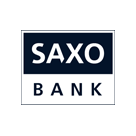 Saxo Bank (1992)
Leverage: up to 1:30
Deposit: from 2000 USD
Spreads:
Saxo Bank (1992)
Leverage: up to 1:30
Deposit: from 2000 USD
Spreads: 

 Amana Capital (2010)
Leverage: up to 1:500 *
Deposit: from 50 USD
Spreads:
Amana Capital (2010)
Leverage: up to 1:500 *
Deposit: from 50 USD
Spreads: 













 Markets.com (2008)
Leverage: up to 1:300 *
Deposit: from 100 USD
Spreads:
Markets.com (2008)
Leverage: up to 1:300 *
Deposit: from 100 USD
Spreads: 







 Think Markets (2010)
Leverage: up to 1:500 *
Deposit: from 5 USD
Spreads:
Think Markets (2010)
Leverage: up to 1:500 *
Deposit: from 5 USD
Spreads: 







 JFD Bank (2011)
Leverage: up to 1:400 *
Deposit: from 500 USD
Spreads:
JFD Bank (2011)
Leverage: up to 1:400 *
Deposit: from 500 USD
Spreads: 




 FreshForex (2004)
Leverage: up to 1:2000
Deposit: from 10 USD
Spreads:
FreshForex (2004)
Leverage: up to 1:2000
Deposit: from 10 USD
Spreads: 












 ActivTrades (2001)
Leverage: up to 1:400 *
Deposit: from 500 GBP
Spreads:
ActivTrades (2001)
Leverage: up to 1:400 *
Deposit: from 500 GBP
Spreads: 





 Infinox (2009)
Leverage: up to 1:1000
Deposit: from 50 USD
Spreads:
Infinox (2009)
Leverage: up to 1:1000
Deposit: from 50 USD
Spreads: 








 BDSwiss (2012)
Leverage: up to 1:2000
Deposit: from 10 USD
Spreads:
BDSwiss (2012)
Leverage: up to 1:2000
Deposit: from 10 USD
Spreads: 











 MultiBank Group (2005)
Leverage: up to 1:500
Deposit: from 50 USD
Spreads:
MultiBank Group (2005)
Leverage: up to 1:500
Deposit: from 50 USD
Spreads: 








 Capex (2016)
Leverage: up to 1:300 *
Deposit: from 1000 USD
Spreads:
Capex (2016)
Leverage: up to 1:300 *
Deposit: from 1000 USD
Spreads: 





 ADSS (2011)
Leverage: up to 1:500 *
Deposit: from 100 USD
Spreads:
ADSS (2011)
Leverage: up to 1:500 *
Deposit: from 100 USD
Spreads: 


 VantageFX (2009)
Leverage: up to 1:500
Deposit: from 200 USD
Spreads:
VantageFX (2009)
Leverage: up to 1:500
Deposit: from 200 USD
Spreads: 









 TeleTrade (2000)
Leverage: up to 1:500
Deposit: from 10 USD
Spreads:
TeleTrade (2000)
Leverage: up to 1:500
Deposit: from 10 USD
Spreads: 






 BlackBull Markets (2014)
Leverage: up to 1:500
Deposit: from 1 USD
Spreads:
BlackBull Markets (2014)
Leverage: up to 1:500
Deposit: from 1 USD
Spreads: 











 Alvexo (2014)
Leverage: up to 1:300
Deposit: from 500 EUR
Spreads:
Alvexo (2014)
Leverage: up to 1:300
Deposit: from 500 EUR
Spreads: 





 Swiss Markets (2016)
Leverage: up to 1:500
Deposit: from 200 USD
Spreads:
Swiss Markets (2016)
Leverage: up to 1:500
Deposit: from 200 USD
Spreads: 







 Oinvest (2018)
Leverage: up to 1:400
Deposit: from 250 USD
Spreads:
Oinvest (2018)
Leverage: up to 1:400
Deposit: from 250 USD
Spreads: 



 HFTrading (2018)
Leverage: up to 1:30
Deposit: from 250 USD
Spreads:
HFTrading (2018)
Leverage: up to 1:30
Deposit: from 250 USD
Spreads: 



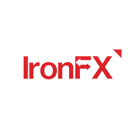 IronFX (2010)
Leverage: up to 1:2000
Deposit: from 100 USD
Spreads:
IronFX (2010)
Leverage: up to 1:2000
Deposit: from 100 USD
Spreads: 






 Skilling (2016)
Leverage: up to 1:500
Deposit: from 100 USD
Spreads:
Skilling (2016)
Leverage: up to 1:500
Deposit: from 100 USD
Spreads: 










 XBTFX (2019)
Leverage: up to 1:500
Deposit: from 0.0001 BTC
Spreads:
XBTFX (2019)
Leverage: up to 1:500
Deposit: from 0.0001 BTC
Spreads: 










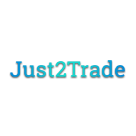 Just2Trade (2015)
Leverage: up to 1:30
Deposit: from 100 USD
Spreads:
Just2Trade (2015)
Leverage: up to 1:30
Deposit: from 100 USD
Spreads: 


















 IFC Markets (2006)
Leverage: up to 1:400
Deposit: from 1 USD
Spreads:
IFC Markets (2006)
Leverage: up to 1:400
Deposit: from 1 USD
Spreads: 







 iForex (2012)
Leverage: up to 1:400 *
Deposit: from 100 USD
Spreads:
iForex (2012)
Leverage: up to 1:400 *
Deposit: from 100 USD
Spreads: 



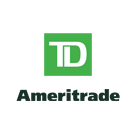 TD Ameritrade (1975)
Leverage: up to 1:50 *
Deposit: from 20 USD
Spreads:
TD Ameritrade (1975)
Leverage: up to 1:50 *
Deposit: from 20 USD
Spreads: 
 Interactive Brokers (1978)
Leverage: up to 1:50 *
Deposit: from 20 USD
Spreads:
Interactive Brokers (1978)
Leverage: up to 1:50 *
Deposit: from 20 USD
Spreads: 
 FxFlat (1997)
Leverage: up to 1:30
Deposit: from 200 EUR
Spreads:
FxFlat (1997)
Leverage: up to 1:30
Deposit: from 200 EUR
Spreads: 





 TMGM (2013)
Leverage: up to 1:500
Deposit: from 100 USD
Spreads:
TMGM (2013)
Leverage: up to 1:500
Deposit: from 100 USD
Spreads: 








 ETX Capital (1965)
Leverage: up to 1:30
Deposit: from 100 USD
Spreads:
ETX Capital (1965)
Leverage: up to 1:30
Deposit: from 100 USD
Spreads: 




 Fondex (2017)
Leverage: up to 1:500
Deposit: from 1 USD
Spreads:
Fondex (2017)
Leverage: up to 1:500
Deposit: from 1 USD
Spreads: 
















 Trade Nation (2019)
Leverage: up to 1:200
Deposit: from 10 USD
Spreads:
Trade Nation (2019)
Leverage: up to 1:200
Deposit: from 10 USD
Spreads: 


 Rockfort Markets (2014)
Leverage: up to 1:100
Deposit: from 500 USD
Spreads:
Rockfort Markets (2014)
Leverage: up to 1:100
Deposit: from 500 USD
Spreads: 



 GBE Brokers (2015)
Leverage: up to 1:30
Deposit: from 500 USD
Spreads:
GBE Brokers (2015)
Leverage: up to 1:30
Deposit: from 500 USD
Spreads: 




 VT Markets (2016)
Leverage: up to 1:500
Deposit: from 50 USD
Spreads:
VT Markets (2016)
Leverage: up to 1:500
Deposit: from 50 USD
Spreads: 






 ACY Securities (2013)
Leverage: up to 1:500
Deposit: from 50 USD
Spreads:
ACY Securities (2013)
Leverage: up to 1:500
Deposit: from 50 USD
Spreads: 




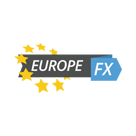 EuropeFX (2017)
Leverage: up to 1:30
Deposit: from 1000 EUR
Spreads:
EuropeFX (2017)
Leverage: up to 1:30
Deposit: from 1000 EUR
Spreads: 








 VPFX (2020)
Leverage: up to 1:1000
Deposit: from 100 USD
Spreads:
VPFX (2020)
Leverage: up to 1:1000
Deposit: from 100 USD
Spreads: 




 Fxview (2017)
Leverage: up to 1:1000 *
Deposit: from 50 USD
Spreads:
Fxview (2017)
Leverage: up to 1:1000 *
Deposit: from 50 USD
Spreads: 









 InvestAZ (2000)
Leverage: up to 1:100
Deposit: from 1000 USD
Spreads:
InvestAZ (2000)
Leverage: up to 1:100
Deposit: from 1000 USD
Spreads: 

 DeltaFX (2009)
Leverage: up to 1:1000
Deposit: from 1 USD
Spreads:
DeltaFX (2009)
Leverage: up to 1:1000
Deposit: from 1 USD
Spreads: 



 Libertex (1997)
Leverage: up to 1:1000 *
Deposit: from 10 USD
Spreads:
Libertex (1997)
Leverage: up to 1:1000 *
Deposit: from 10 USD
Spreads: 










 Solid ECN (2021)
Leverage: up to 1:1000
Deposit: from 1 USD
Spreads:
Solid ECN (2021)
Leverage: up to 1:1000
Deposit: from 1 USD
Spreads: 






 GANNMarkets (2010)
Leverage: up to 1:400
Deposit: from 100 USD
Spreads:
GANNMarkets (2010)
Leverage: up to 1:400
Deposit: from 100 USD
Spreads: 








 Tradiso (2021)
Leverage: up to 1:100
Deposit: from 100 USD
Spreads:
Tradiso (2021)
Leverage: up to 1:100
Deposit: from 100 USD
Spreads: 






 PU Prime (2015)
Leverage: up to 1:1000
Deposit: from 50 USD
Spreads:
PU Prime (2015)
Leverage: up to 1:1000
Deposit: from 50 USD
Spreads: 




 CWG Markets (2018)
Leverage: up to 1:1000
Deposit: from 10 USD
Spreads:
CWG Markets (2018)
Leverage: up to 1:1000
Deposit: from 10 USD
Spreads: 









 Varianse (2015)
Leverage: up to 1:500
Deposit: from 500 USD
Spreads:
Varianse (2015)
Leverage: up to 1:500
Deposit: from 500 USD
Spreads: 




 MTFXG (2022)
Leverage: up to 1:1000
Deposit: from 100 USD
Spreads:
MTFXG (2022)
Leverage: up to 1:1000
Deposit: from 100 USD
Spreads: 






 CapitalXtend (2005)
Leverage: up to 1:1000
Deposit: from 100 USD
Spreads:
CapitalXtend (2005)
Leverage: up to 1:1000
Deposit: from 100 USD
Spreads: 







 Fusion Markets (2010)
Leverage: up to 1:500
Deposit: from 20 AUD
Spreads:
Fusion Markets (2010)
Leverage: up to 1:500
Deposit: from 20 AUD
Spreads: 








 CXM Direct (2015)
Leverage: up to 1:2000
Deposit: from 10 USD
Spreads:
CXM Direct (2015)
Leverage: up to 1:2000
Deposit: from 10 USD
Spreads: 



 CFI Financial (1998)
Leverage: up to 1:400 *
Deposit: from 50 USD
Spreads:
CFI Financial (1998)
Leverage: up to 1:400 *
Deposit: from 50 USD
Spreads: 




These are forex brokers that offer Contracts for Difference (CFDs) on stocks of companies from around the world. Most stock forex brokers offer stocks that are listed on US exchanges with additions from other major stock indices from around the world, especially from the UK, Germany and Japan. You may ask: what is the difference between the stocks listed on the platforms of stock forex brokers and stocks that are listed on the platforms of conventional stock brokers? Here are some of them:
Stock CFDs are offered by forex brokers all over the world. Therefore, you will see brokers in the UK, EU, Australia and offshore locations offering these assets. The only forex brokers who do not offer stocks as a result of regulatory restrictions are US forex brokers. CFD trading on the retail end of the market is prohibited by the CFTC, so you will not see stocks CFDs being offered for trading. The location of the forex broker will determine the contract specifications for the listed stocks.
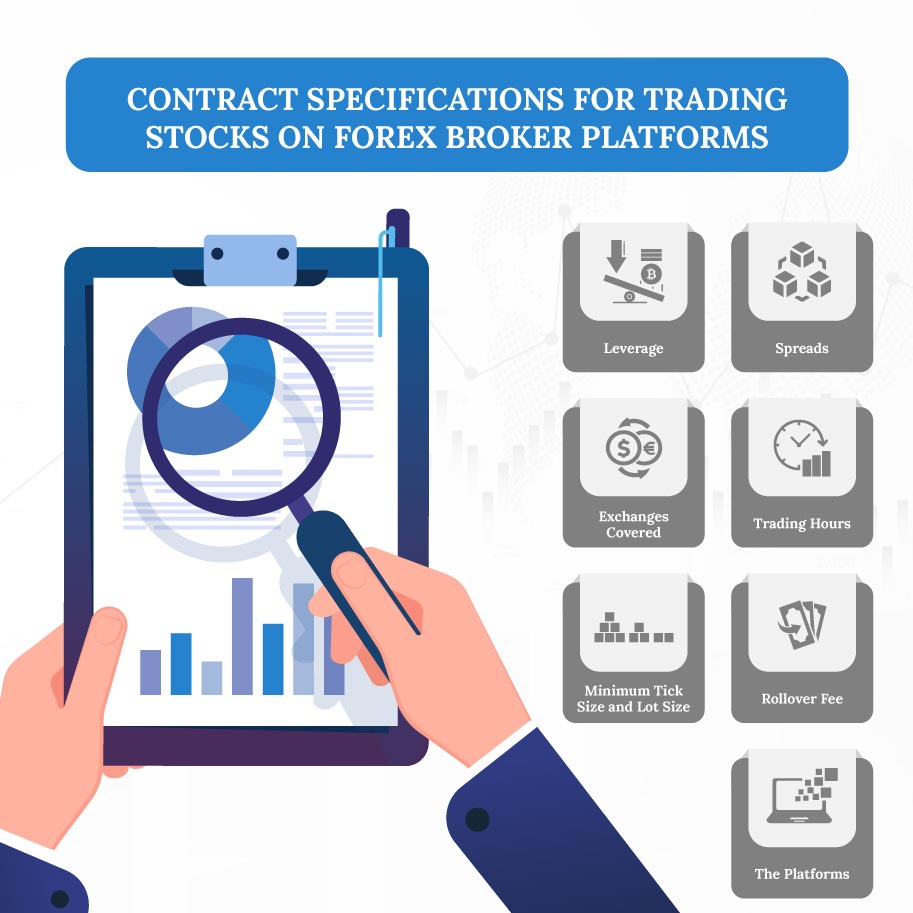
One major specification that will be affected is the leverage. In 2018, the European Securities and Markets Authority (ESMA) reduced the leverage limit for trading of all assets on UK and EU forex brokerages, and stocks CFDs were hit with a severe leverage restriction. Presently, CFDs on stocks can be traded with a maximum leverage of 1:5, which translates to a margin requirement of 20%. What this means is that if a trader buys 100 units of a stock CFD and this trade costs $2,000 to execute, the trader is expected to come up with a margin of $400 as collateral for the trade. However, some of the offshore brokers listed on our website offer various leverage amounts for stocks CFDs. If the trade example mentioned above was to be executed on one of these offshore platforms with a leverage of 1:100 (i.e. 1% margin), then the trader would only need $20 to execute a trade that costs $2000 to execute.
When it comes to spreads, there are differences from one stock forex broker to another. Spreads on stocks CFDs, especially those of the big stocks, are usually higher than you would get in major currencies. Therefore, traders need to be aware of the cost implications of trading certain CFDs on stocks. Many traders trade stocks on an intraday basis. When day trading stocks CFDS, minute reductions in the spreads on these assets can translate into significant cost savings in the long run.
On most stock forex broker platforms, the stock CFD assets usually featured are pooled from the US exchanges (Dow Jones, Nasdaq100 and S&P500). However, stocks from exchanges in Japan, China, UK and EuroStoxx may also be featured. As a rule, you would like to choose platforms that feature stocks that you are familiar with.
Stock markets are not 24-hour markets. They are only open for a few hours a day, and these hours are the only times you can trade stock CFDs. The market hours for each national exchange are different and you need to consult the contract specifications page of your preferred broker to know what the trading times for your preferred stock CFDs are.
The minimum tick size will indicate by how many points the stock will move when there is a change in price by a single tick. It is also important to know the monetary value of a single tick move. Obviously, the contracts traded as stock CFDs are very different from what obtains in the forex market. In forex, a Standard Lot trade will cost $100,000 to setup and is expressed as a trade volume of 1.0. In stocks, a Standard Lot is equivalent to 100 units of a stock, which is actually the value of a full stock CFD contract. However, due to the wide variation in the pricing of the various listed stocks, the monetary cost of a full contract will differ from stock to stock. For instance, the cost of setting up 1 contract for Tesla will be different from the cost of setting up 1 contract for Alcoa. The only way you can get accustomed to these variations is when you practice trading stocks CFDs on demo accounts.
If you intend to hold a position on a stock CFD beyond the same trading day, you will incur a fee known as the rollover fee or the swap fee. Traders who hold Islamic accounts are exempted from paying this fee. Again, it must be pointed out that the rollover fee differs from one stock CFD to another. You would do well to get this information from any of the brokers in our list.
If you scan through the stock forex brokers on our list, you will realize that nearly all of them feature the MetaTrader 4 or MetaTrader 5 platforms. A few of the brokers also offer proprietary platforms. You need to study these platforms to understand how to make certain stock CFD assets available or unavailable for trading. There are also certain nuances to get a good grasp of; some of these include how orders are placed, how to set durations for pending orders (Good till Cancelled or Good till Day), or how trade sizes are displayed (lot sizes or number of units).
A number of stock forex brokers on our list also offer proprietary platforms which are different from the MT4. If you decide to work with some of these brokers, you should study these proprietary platforms to see how you can get the best out of their stock CFD trading features.